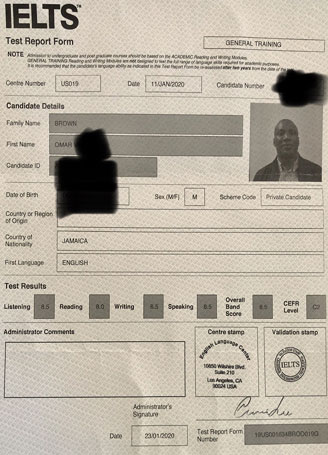Indian doctor reveals how she boosted her IELTS score to Band 8
Today we would like to share with you the success story of Dr. Ishita Dhada who improved her IELTS score to Band 8 overall, with a perfect 9 in Listening. You may remember Dr. Dhada’s name as a winner of our monthly IELTS results competition in February. When she wrote and asked to be included in the competition, her email got our entire team smiling with satisfaction:
“I am happy to share that this time I have received the required score. I have got an overall 8.0 band score ( L-9, R-8, W-7, S-7 ).
I am really grateful to you for all your help. The test papers that you have designed always kept me a step ahead to face IELTS with more confidence. Moreover, I must say that IELTS-Blog.com has also played a profound role in terms of providing me with the latest writing and speaking questions to go through.”
But Dr. Dhada is so much more than a high achiever – she is also a very kind and compassionate person, who wants others to benefit from her experience. In her winner’s interview she shared the following advice – we are convinced that some of it can be applied to anyone’s IELTS preparation, just go ahead and give it a try.
Dr. Dhada said:
“It was my third IELTS attempt and finally I received an overall 8.0 band score (L-9, R-8, W-7, S-7) which was much awaited. After appearing for IELTS multiple times,I would like to share some important takeaways from my experience.
Writing
After repetitively getting 6.5 in writing, it had become a pain in neck for me to conquer IELTS.
Writing is all about sticking to word limits and not going far beyond it. Ultimately, it helps us to make fewer mistakes. Minimizing the number of errors is the key to increase the writing score.
Another important point is to do planning before attempting any writing task. There is a famous quote by Abraham Lincoln, “If I had 6 hours to chop down a tree, I would spend the first 4 hours sharpening the axe.” Initially, I wasn’t convinced I should spend the initial 3-5 min planning. But, slowly and gradually when I started practicing it, and it turned out to be a game changer for me. Planning helps you keep the flow of ideas clear in each paragraph you are writing. For example, jot down points like Body Paragraph 1 – Idea and Example, and similarly for the rest of the body paragraphs.
Use variety of words. That doesn’t mean using complex vocabulary. Using different synonyms for a word can turn a score in our favor.
Lastly, rechecking at the end of writing is not optional, you must do it. Spending the last 5 minutes proofreading can give you an extra 0.5 Band Score.
Listening
For listening I would say, the more we practice the more we become familiar with the pattern. Gradually, it becomes a cake walk to stay tuned to the recording and identify the answers because most of the time I felt that “the tone gives it away”.
Reading
Again for reading, practice is the key. However, here we can apply some strategies to nail it in a much smarter way.
Firstly, each question has a specific keyword to look for in the paragraph. After locating the keyword, it becomes easier to find the correct answer.
Moreover, among all the different types of questions in reading, only in one or two types, answers don’t come in sequence. So, for the rest of the types, answers always follow the order of the text.
Speaking
My English is very basic as I don’t apply it much in my day-to-day life. However, daily recordings of 2-3 speaking sessions helped me to become comfortable with the language and present myself confidently in front of the examiner, not only by answering questions in a much structured way but also by using proper hand gestures and facial expressions.
Moreover, I would like to thank IELTS-blog.com for providing latest speaking and writing questions to enhance my preparations. Practice papers in the books by Simone Braverman were excellent to boost my confidence.
To conclude on a positive note, I would like to say, give it your best shot and you will get the desired score. Never give up as it is rightly said, “Fortune comes to the brave”.

